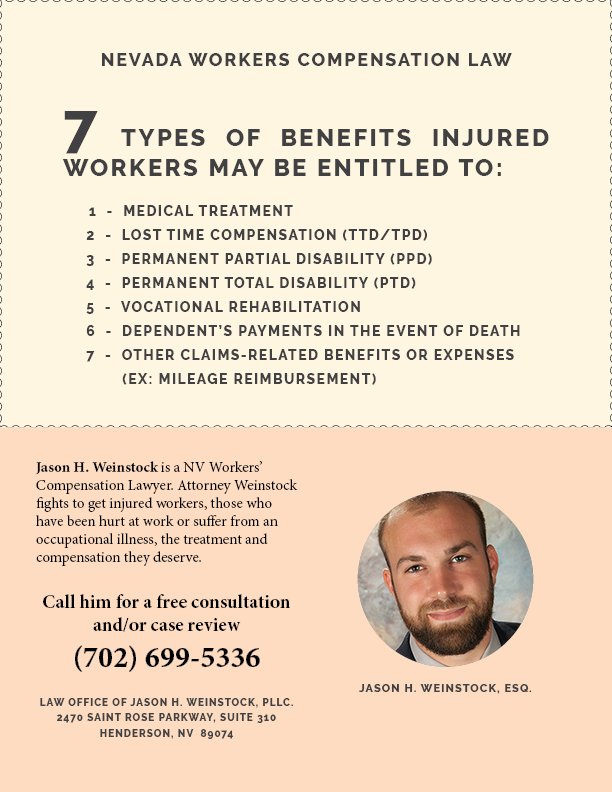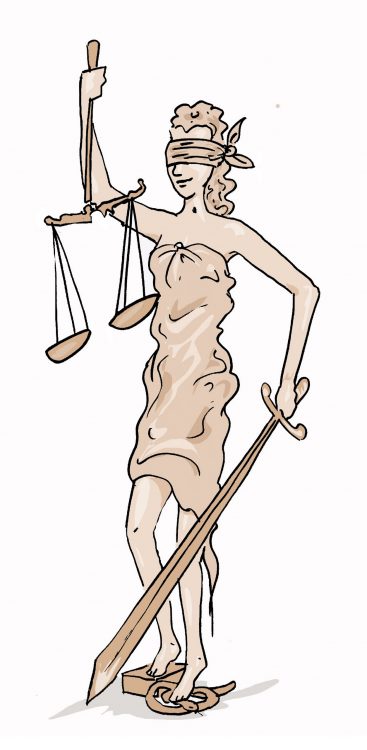A few weeks ago, I posted a blog regarding “5 Mistakes That Can Affect Your Nevada Workers’ Compensation Claim.” Number one on the list was missed filing deadlines. Filing deadlines refers to filing claims with the insurer, giving notice to your employer, and filing appeals to the Department of Administration. However, there are many deadlines that may affect your claim and they can expire fast. Below are some time deadlines for a Nevada workers’ compensation claim that you should keep in mind!
-
Time to notify your employer that you have been injured at work or have been diagnosed with an occupational disease/illness = 7 days.
- The statute says the injured worker must notify their employer “as soon as practicable, but within 7 days after the accident.” I recommend telling your employer the day you are injured, regardless of how severe you think it is.
-
Time to notify the insurer (file a claim for compensation) that you have been injured at work or have been diagnosed with an occupational disease/illness = 90 days.
- A C-4 form (Request for Compensation) must be filed by the injured employee within 90 days after the accident if: (1) the employee sought medical attention, or (2) has missed work because of the injury or illness.
-
Insurers have 30 days from when they received the C-4 form to make a determination on claim acceptance or denial.
-
Time to request mileage or travel reimbursement = 60 days.
- Requests for mileage or travel reimbursement must be made within 60 days after the expenses are incurred.
-
Time to submit medical billing to the insurer = 90 days.
- Medical billing must be submitted within 90 days of the date of service.
- The insurer has 45 days to approve or deny.
-
Time to request a transfer of care = 90 days.
- An injured worker has 90 days from the date of injury to request a transfer of care to a workers’ compensation doctor of their choosing.
- However, the workers’ compensation doctor must be off the insurer’s provider list.
- The insurer has 10 days to grant or deny the request. If there is no response within 10 days, the request is deemed granted. Because of practical reasons, the 10 day rule is hard to enforce.
-
Insurers also have 30 days from the date of any request made by the injured worker or their attorney to issue a determination regarding the request.
-
Time to file an initial appeal with the Department of Administration, Hearings Division = 70 days.
- This includes appeals of claim denials, claim acceptance, denial of treatment authorizations, denial of mileage reimbursement, a transfer of care, claim closure, etc.
-
Time to file an appeal of a hearing officer’s decision and order = 30 days.
- Appeals of a hearing officer’s decision and order must be filed within 30 days of the date the decision and order was signed.
- Appeals are filled with the Department of Administration, Appeals Division.
-
Time to file an appeal of an appeals officer’s decision and order = 30 days.
- Appeals of an appeals officer’s decision and order must be filed within 30 days of the date the decision and order was signed.
- Appeals are filed with the District Court and are called a Petition for Judicial Review.
This is not an exhaustive list of all the rapid time deadlines for a Nevada workers’ compensation claim, but it does cover a majority of the most missed deadlines.
















